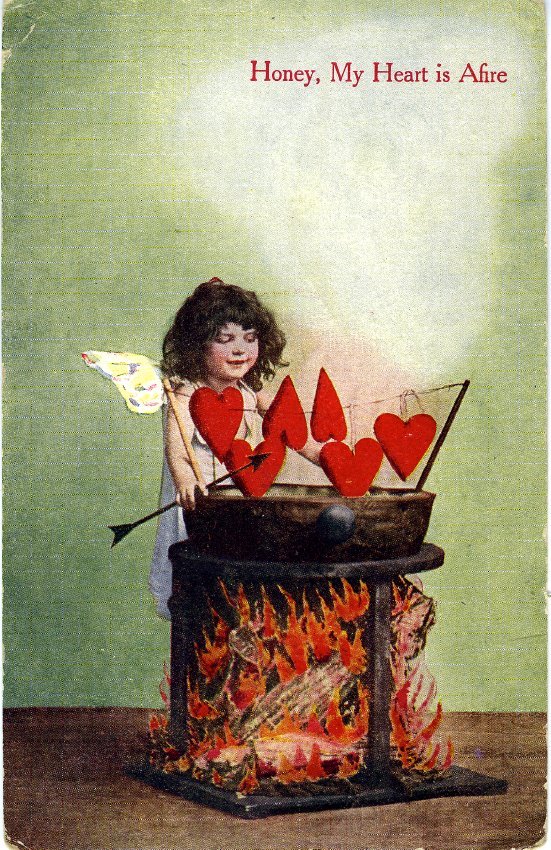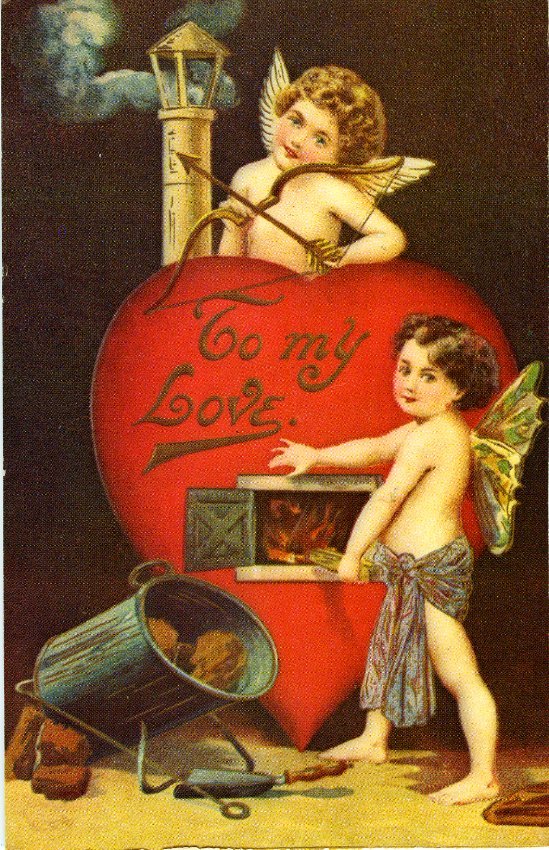Love Letters
By Chelsea Mitchell, Director of Community Engagement & the Woolworth Library, Stonington Historical Society
With the bone-chilling cold of a New England winter truly set in, everyone is looking for ways to warm up; and while a cup of tea can do the trick, there may be a better remedy. Love letters. More specifically, a hand-written love letter.
The earliest mention of a love letter is some 5000 years ago, in Indian mythology. There are examples from Ancient Egypt, Imperial China, Ancient Rome and Medieval writings, some of which is enough to make you blush! (“let me bathe in thy presence, that I may let thee see my beauty in my tunic of finest linen, when it is wet”) The roman author Ovid published a book on the art of love, Ars Amatoria, in which love letters figure prominently. In the Middle Ages the Ars Dictaminis, (art of letter writing) included the art of crafting a perfect love letter from start to finish.
Consider how long the letter served as the primary mode of communication, across vast distances and lengths of time. Your husband may be off on business for a month, and your only communication would be via post. Perhaps you’d left your wife on shore for a three year whaling voyage into the Pacific. People may fall in love through letters, or sustain a relationship through their times of separation. A love letter was a great way to express how much you missed someone, and what they meant to you. They could be saved and looked back on time after time. Love letters make for really beautiful family heirlooms; they can mark a very specific place in time and humanize our ancestors in a way the legal or public record cannot.
Writing and receiving love letters is actually good for you. Scientists have concluded that the process of writing by hand creates neurocircuitry to the brain that typing does not. Writing words of love and gratitude triggers the release of dopamine, which makes you feel happy. Similarly, reading those words of intimacy, commitment and affection release the same dopamine reaction. Sometimes expressing such strong feelings verbally can be overwhelming, and the letter format allows for the time to compose your thoughts, as well as the ability to speak freely about your feelings. As Marcus Cicero once said, “A letter does not blush.”
In the spirit of warming ourselves up with love this February, we’ve included excerpts from a few love letters in the collection of the Stonington Historical Society.
“Baltimore, November 18th, 1809
Dear Eliza,
I need not say that it is with exquisite pleasure I take pen in hand to write you, no my dear, nothing can heighten my knowledge of affection for you, like absence and nothing can give me more delight or pathos of soul, than the thought of being again with you at home.”
A marriage proposal, 1817
“Be not offended Sally Ann should the manner of this application be inconsistent with your idea of propriety. Was I conscious of its being so I should never have attempted it. My reasons for adopting this mode of communicating my sentiments to you was to give you an opportunity of deciding without embarrassment and to learn your sentiments without a direct avowal. I hope that you will not be surprised at my declaration that a determination to make this attempt has been formed now for more than two years and at no time have I ceased to look forward in hope to the period when I could with propriety adopt it. To you it is now referred and your decision will either extinguish the last ray of Hope or change it to reality where I cannot hope for more. I cannot presume you unconscious of the sentiments of Regards which I have entertained toward you although not directly expressed, but if I am mistaken in the supposition believe me when I avow it now; actuated by sincere Esteem and well tested affection do I ask you to receive my addresses, directly and personally, with the approbation of your Parents to whom I only wait your permission to apply.
I have no argument to urge in my Favor. I am too well known to you to expect success from deceitful pretensions. With anxiety shall I wait the result of this communication. If it is favorable can you doubt that I shall be happy in the gratification of the first wish my Heart; if the Reverse I must always Respect and Esteem you although I may be constrained to suppress more tender Emotions.
Relying on your goodness to make painful suspense as short with me as possible.
I am with sincerity, Yours, Gurdon”
A poem written for a first wedding anniversary, 19th century
“One Year Ago Today.
One year ago to-day, when we were wed,
I wondered what the future held for me,
With all its problems, changes on ahead,
When life could be a calm or tempest sea.
With memories sad for both and lonely hours,
With embers of our ages growing low.
We’d have to use the strength of both our powers
To kindle in those embers renewed glow.
I’ve sometimes feared that I would fail my part,
You are by far the stronger of the two.
But your great love has spurred me on to try
And you have been so steadfast and so true.
We’ve met the problems, met the changing weather,
This year that we have shared a life a-new,
But we have worked and worked and pulled to-gether
With that deep love that always pulls folks through.
We’ve had much joy trudging side by side
We’ll take the happiness that falls our way,
We’ll revel in the ebb and flow of tide
Of love to make our Twilight Nearing gay.”
1945
“Dear old tyrant,
Another scolding letter today! Well, if I had you here I would kiss you so hard that you would wonder what hit you. Don’t blame me- go for the government. This is the fifth time I have written you since you left one week ago yesterday…”
1941
“And now I am going to bed and dream of you. It is very lonesome sleeping all alone and I think all double beds should be burned. I love you, dear, more than I ever dreamed was humanly possible and the more I see of other couples the more I am sure that ours is the perfect love and relationship. Goodnight my dearest if my love reaches you it should make your blood boil over under the coldest conditions.”
Images in this post are from the Norman Brouwer Postcard Collection, and the Anderson Family Collection, both held in the archives of the Woolworth Library at the Stonington Historical Society.





